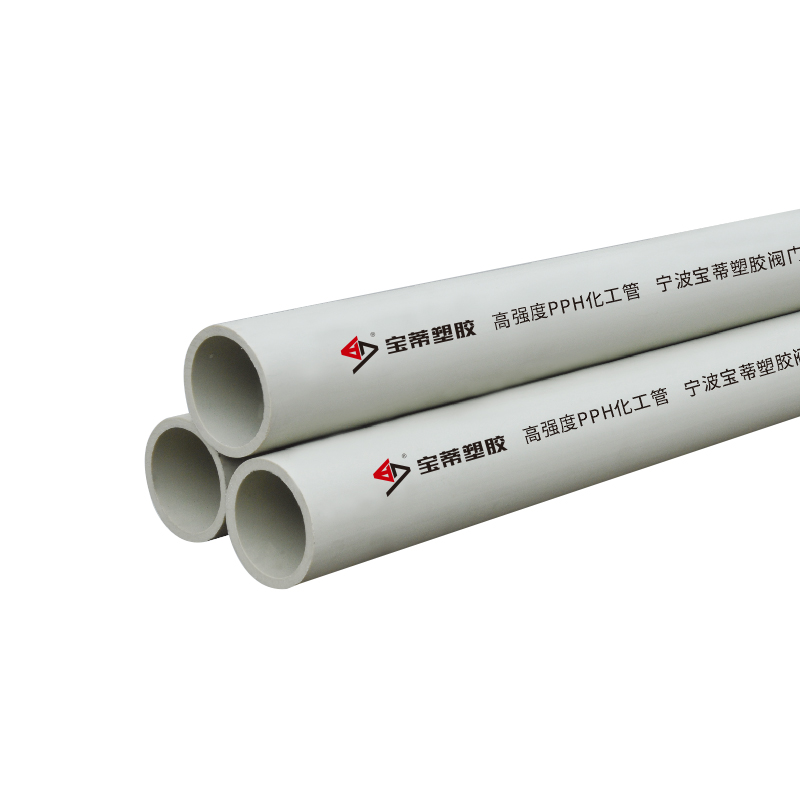Summary:PPH pipes must meet certain requirements to ensure normal drainage function
Requirements for pipes, the materials of dra...
PPH pipes must meet certain requirements to ensure normal drainage function
Requirements for pipes, the materials of drainage pipes must meet certain requirements to ensure the normal drainage function. PPH pipe drains must have sufficient strength to withstand external loads and internal water pressure. Drainage pipes must be able to resist the erosion and wear of impurities in sewage, and should also have anti-corrosion functions, especially for some corrosive industrial wastewater. Drainage channels must be impermeable to prevent sewage seepage or groundwater infiltration, which could contaminate ground, sewers, or corrode other pipelines and building foundations. The inner wall of the drainage pipe should be flat and smooth to minimize the resistance to water flow.
Drainage pipes and canals should be sourced locally as much as possible, taking into account the possibility of prefabricated pipe fittings and rapid construction to reduce transportation and construction costs. Types of Drainage Pipes Currently, the commonly used drainage pipes are as follows: concrete pipes and reinforced concrete pipes (PCP). But the disadvantages are poor impermeability, short pipe joints, many interfaces and inconvenient handling. The inner diameter of the concrete pipe is not more than 600mm, and the length is not more than 1m. It is suitable for the small diameter of the pressureless pipe. The diameter of the reinforced concrete pipe is generally more than 500mm. The length is 1m~3m. It is mostly used in areas with large burial depth or poor geological conditions. The interface forms include socket, tongue and groove. Among the new types of pipes is a reinforced concrete lined PVC pipe and a reinforced concrete lined PVC rubber top pipe. The price of this kind of pipe is relatively high, and its lining PVC is mostly imported material, and it has been widely used in Guangdong in recent years. Generally used for pipe jacking construction. Steel pipe has good mechanical strength, high pressure resistance, vibration resistance, light weight, large single pipe length, convenient welding port, strong adaptability, but poor corrosion resistance and high anti-corrosion cost.
PPH pipes are generally used in special areas such as high-pressure places, due to geological and topographic conditions, crossing railways, river valleys and earthquake areas. Generally, less steel pipes should be used in sewage pipes to extend the service life of the entire pipe network system. FRP sand pipe (RPMP) FRP sand pipe is light in weight, convenient in transportation and installation, small in internal resistance, strong in corrosion resistance, and has a service life of more than 50 years. The price is slightly higher.


